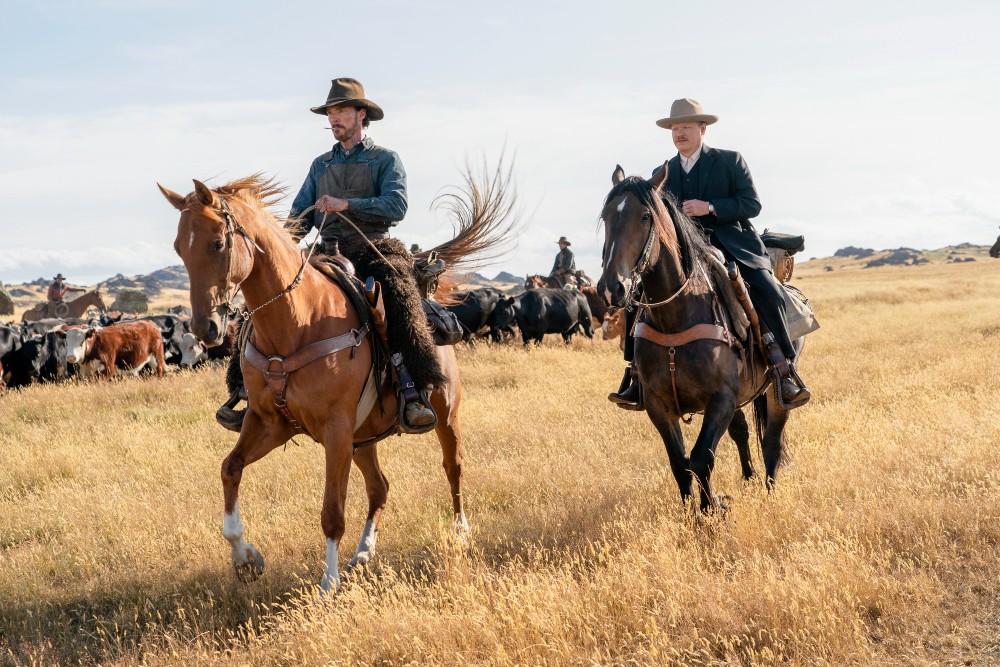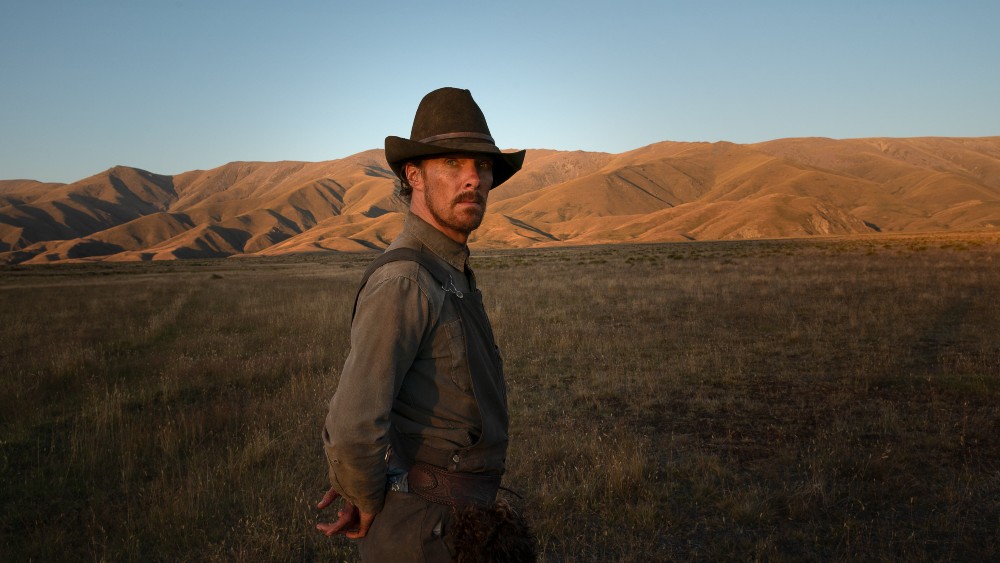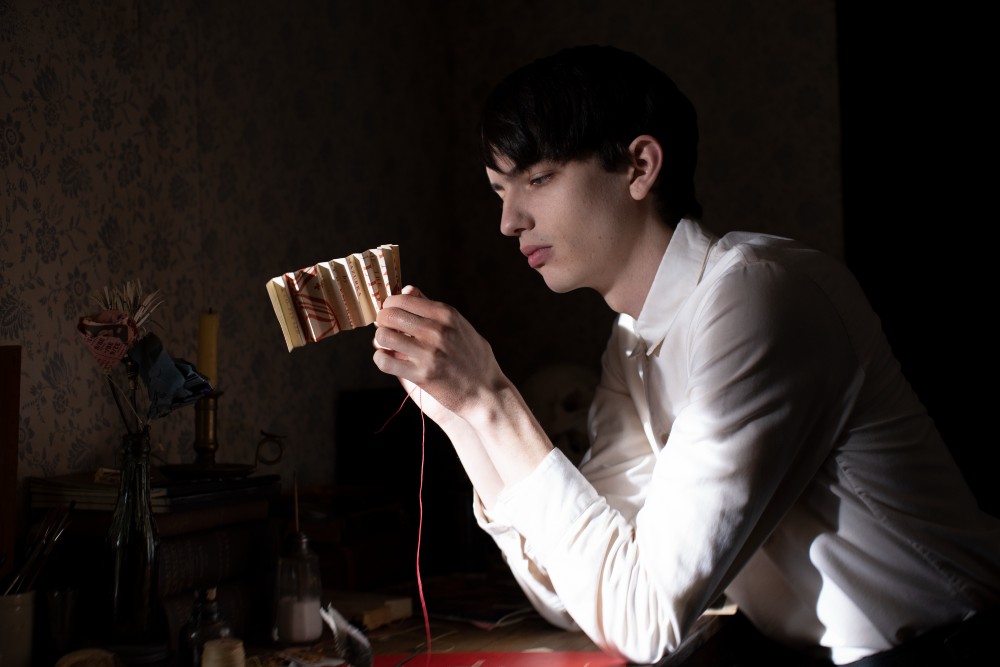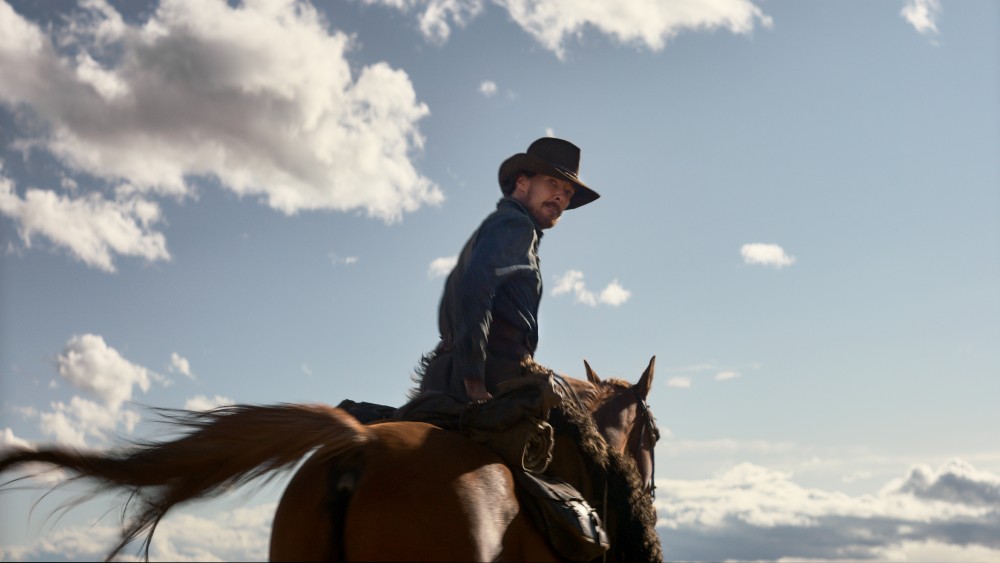
Twenty years before Chloé Zhao became only the second woman ever to win the Academy Award for Best Director, another woman became only the second to be nominated for that award. Her name is Jane Campion, and in 1993 she won a screenwriting Oscar for The Piano, which landed her that historic Best Director nomination. Since then, Campion mostly faded into arthouse film obscurity and even—gasp!—directing TV shows. Until now.
In 2021, Netflix and its oversized platform have taken a chance on Campion’s latest film—one that should bring her back into mainstream industry attention—The Power of the Dog. With this triumphant return to the big screen, a meticulously crafted and powerfully rendered piece, Campion cements herself as one of the most talented voices of her filmmaking generation.
The Power of the Dog comes to the movie theater from Thomas Savage’s 1967 novel of the same name, as adapted by Campion herself. In the film, four personalities who are at least nominally diametrically opposed to each other clash in the Montana prairies of 1925. The first two, the brothers Phil and George Burbank (Benedict Cumberbatch and Jesse Plemons) are wealthy ranch owners whose fortunes appear to be consistently improving. Phil is as sadistic and domineering as George is docile and dopey. The Burbanks’ domestic existences are mostly quietly and idyllic—save for a Phil temper tantrum or unprovoked attack on a stranger, or for George’s morose contemplativeness, as he longs aimlessly for a companion. This delicate tranquility is, in any case, interrupted by the Burbanks’ encounter with the two other principal characters, the widow Rose Gordon and her creepily bizarre if sensible son Peter (Kirsten Dunst and a stunning Kodi Smit-McPhee).

Like the Burbanks’, the Gordons’ seeming domestic peace, punctuated by the bed and breakfast they run in the middle of the tumbleweeds, is teetering after the death of their patriarch. Peter is artistic, sensible, and obedient. Rose is quiet, resolute, hard-working, and determined. The later personality is perhaps a good fit for George, but she is rather poor, and such arrangements were certainly frowned upon in the Great Plains in the 1920s. Meanwhile, the juxtaposition between Phil Burbank’s vicious bullying and Peter’s lanky softness is a sort of ticking time bomb. When George does decide to wed the weeping widow and bring her into the estate, Phil’s even darker, crueler instincts float to the surface, and do not sit well with either the fragile, teetering Rose, or with her even frailer son, setting up a potentially vicious beat down to rival the last great movie Western, Paul Thomas Anderson’s There Will Be Blood.
But The Power of the Dog, despite its lofty appearances (more on those, soon), is not your traditional Western. Campion is singularly uninterested in entrapping you with explosions, gun fights, horse chases, or saloon confrontations. Sure, she sprinkles her screenplay with reminders of the physical grittiness of life 100 years ago—nasty flesh wounds, cruelty to animals, and sweaty, corseted domestic discomfort. But her purpose is a fundamentally different one than that of a gunslinger’s adventurers. Campion’s canvas is an invitation to the audience, to step into this world (cautiously, given the inherent deceptiveness of some of the characters) to discover not a hidden gold mine but the secrets that lie beneath the film’s more confounding individuals.
This is to say that Campion is as disinterested in cheap thrills as she is in turning her movie into pulpy entertainment for the sake of box office. Rather, hers is an invitation to step in to slowly discover the layers under which she has buried her characters.
“Nothing is at all what it seems” is a descriptor usually reserved for futuristic thrillers or neo-noir classics. Campion’s successful adaptation of that conceit to the Western is one of the many reasons her film is so powerfully memorable, even when it becomes obvious that she has fudged with the edges of the 1967 story to mold it into 2021 sensibilities.
The other reason The Power of the Dog is one of the best movies this year so far is Campion’s own undeniable, vast experience as a talented director. Unlike so much of the work one observes today—particularly from novices being given platforms at film festivals, including at the Telluride Film Festival, where Campion’s movie screened—Campion’s work is remarkably effortless, particularly given the multi-faceted aspect of the proceedings. Her shots do not seem contrived, purposeless, or boastful. Her touch has a delicate, natural ease about it, she knows how to combine the many complex and beautiful elements of her creation to help them all work with one another.
And the list of such parts is lengthy. Two stand out—a rambunctious score by Jonny Greenwood (his second of Telluride, the other coming in Pablo Larrain’s Spencer), and the meticulous art direction by Lord of the Rings alumni Mark Robins and Grant Major. Greenwood, of course, has been here before, having scored the aforementioned Anderson film, one of the most memorable movie scores of the 2000s. But he does not revisit that work here. His music for The Power of the Dog is both quieter but also harsher, depending on the setting. There is some nirvana between George and Rose, at least at first, and Greenwood is content to let that arcadia play out for as little as it lasts with melodies far more delicate than in his prior work. Cumberbatch’s Phil Burbank, by contrast, is in some ways creepier than Daniel Day Lewis’ Daniel Plainview, and Greenwood’s cymbals and drums explode accordingly when he is around, or when Campion’s and her cinematographer’s piercing lens pans wide to capture breathtaking Montana landscapes. “There is danger at hand,” seems to be the warning.
As for the set decoration, it is not often that “Westerns” (The Power of the Dog is, really, only nominally a Western) spend so much time indoors. In this film, the Burbank mansion is the center of the majority of the proceedings, at least those that are not captured by the expansive lens of Cinematographer Ari Wegner. The meticulous attention to detail—from latrines and old Del Monte “catsup” bottles, to grand pianos, and mounted hunting spoils—adds to the already captivating nature of the proceedings. This world feels real, because it is not completely disconnected from our own, and the careful set decoration has a lot to do with that.

Then, of course, there are the actors. Plemons has the toughest job, asked to again play a dopey and forgettable personage, a task he achieves to his own detriment, as he lets himself become secondary. Dunst has never been better, letting herself grow up gracefully, while conveying the physical and emotional tumult that a person in her situation (a surly widow with an anti-social son) surely must have experienced. As the son, newcomer Smit-McPhee gets under your heart and then under your skin, as he subtly but effectively transitions from hapless victim to clever manipulator. And Cumberbatch, in charge for most of the runtime, consistently refuses to let you categorize him. The four do what Campion wants them to by keeping you guessing as to what actions these people may take in response to the various troubles that ail them.
But it does all come back to the New Zealander, to that director with a gritty, unique, female perspective on suffering and cruelty, on moody dramas and suspenseful conclusions. Campion is, at bottom, a master storyteller. Few directors can combine a deep and effective array of technical crafts with an interesting and layered story and do it without it being painfully obvious that they are trying too hard. Campion’s touch is soft while delivering the hard blows. That aesthetic makes her unique among her peers and also renders her films so hauntingly memorable. These gifts, all splayed out masterfully here, make The Power of the Dog one of the must-see movies of the year.
Grade: A
The Power of the Dog premiered at the Venice and Telluride Film Festivals and will play at the New York Film Festival next month. It will then be released by Netflix in U.S. theaters on November 17, 2021 before streaming on the platform two weeks later.
All photos courtesy Netflix; photographer: Kirsty Griffin






